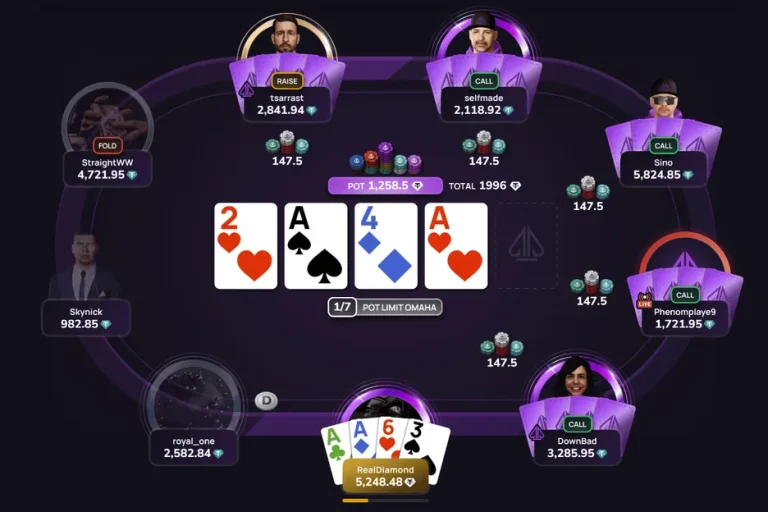Badugi is a unique and exciting draw poker variant that challenges traditional hand values and rewards creativity in strategy. In this lowball game, the best hand is a four-card combination of different suits and ranks, with A-2-3-4 being the nut hand. However, perfect Badugi hands are rare, and consistently waiting for them can limit your profitability. Success in Badugi often comes from knowing how to play imperfect hands effectively — with smart folds, timely aggression, and reads on your opponents.
Understanding Badugi Hand Rankings
Before diving into strategy, it’s important to grasp how hands are ranked in Badugi:
-
A Badugi hand consists of four unpaired cards, all of different suits.
-
The best possible hand is A-2-3-4, each from a different suit.
-
If you can’t make four unique cards, your best three-card hand is considered, and so on.
For example, if you hold A♠-2♦-3♣-3♠, you only have a three-card hand (A-2-3 of different suits). This is stronger than a lower-ranked four-card hand with higher values.
Why Waiting for Perfect Hands Isn’t Optimal
While perfect Badugis are powerful, they’re extremely rare. Skilled players know how to capitalize on partial hands, especially when opponents are still drawing or showing weakness.
Playing imperfect hands gives you:
-
More hands played per hour, increasing your win potential.
-
Greater flexibility, especially in position.
-
Bluffing opportunities, when opponents are chasing stronger hands.
You don’t need to make the nuts every time to win — often, a decent three-card hand will suffice, especially against opponents who are also struggling to make a four-card Badugi.
Aggression is Key in Drawing Games
In Badugi, drawing is frequent and passive play rarely pays. When you’re up against opponents still drawing cards, you should apply pressure with bets and raises — especially if you’ve already “stood pat” (meaning you aren’t drawing anymore).
Even if your four-card Badugi isn’t perfect (say, 2-5-7-J), you can still win hands if:
-
Your opponent is drawing to beat you.
-
You show strength through betting behavior.
-
You exploit positional advantage.
Many hands are won without showdown, especially when you apply well-timed aggression.
Position Makes a Big Difference
Playing in position is particularly powerful in Badugi. When you’re last to act, you get vital information:
-
How many cards your opponents are drawing.
-
Whether they’re betting or checking.
-
Their tendency to bluff or play cautiously.
Use this knowledge to control the pot size, decide when to bet your marginal hands, or fold when necessary.
Knowing When to Stand Pat
You don’t always need to hit a perfect Badugi to stop drawing. Standing pat with a strong three-card hand (like A-2-4 of different suits) is often enough if you sense your opponents are weak or still drawing.
Standing pat:
-
Signals strength.
-
Applies pressure to drawing opponents.
-
Allows you to control the action more effectively.
However, don’t get too attached. If your opponent is betting strong and has stood pat as well, you may be outkicked even with a decent Badugi.
Exploiting Opponent Tendencies
Successful Badugi players make reads based on:
-
Drawing patterns (number of cards taken).
-
Betting sequences.
-
Showdown habits.
Against loose opponents, you can bluff more. Against tight players, value betting your mediocre Badugis can pay off.
Be patient and observant — many wins come from exploiting patterns rather than just the strength of your hand.
FAQ
1. Can you win in Badugi with only a three-card hand?
Yes, you can win with a strong three-card hand if your opponent fails to make a four-card Badugi or folds to your aggression. A well-played three-card hand like A-2-4 can beat a weak four-card hand.
2. Is it worth drawing for a perfect Badugi every time?
No. Chasing perfect Badugis too often can cost you chips. Instead, focus on drawing when the pot odds and your position justify it, and be willing to play strong imperfect hands when appropriate.
3. How important is position in Badugi?
Position is crucial. It allows you to see how many cards your opponents draw and respond accordingly. Acting last gives you more control over betting decisions and helps determine whether to bet, raise, or fold.


